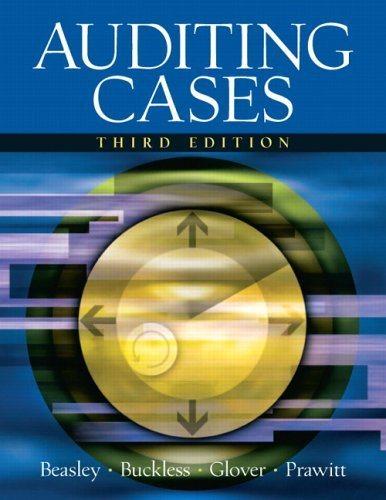Answered step by step
Verified Expert Solution
Question
1 Approved Answer
I am trying to solve this using the indirect method but I am having trouble understanding how to add my new transactions. i have the



I am trying to solve this using the indirect method but I am having trouble understanding how to add my new transactions. i have the answers but I dont understand how to work in the new transactions Would I use t charts and then put them into a balance sheet and income statement? if you could solve and show the work along with the final calculations asked that would be great thank you.
A colleague who is aware of your understanding of financial statements asks for help in analyzing the transactions and events of Zett Corporation. The following data are provided: PROBLEM 7-3 Preparing and Analyzing the Statement of Cash Flozes (Indirect) ZETT CORPORATION Balance Sheets December 31, Year 1 and Year 2 Year 1 Year 2 $ 34,500 17,000 14,000 Cash .......... $ 34,000 Accounts receivable, net........ 12,000 Inventory 16,000 Investments (long term) ........ 6,000 Fixed assets 80,000 Accumulated depreciation....... (48,000) Total assets. $100,000 93,000 (39,000) $119,500 (continued) LO P PUL LUTLUL VICIUSUILIVILIUSURE WELUSUBUwe Template/Downloads/FSA%20-%20In%20class%20cases%20%20-962026 27.09.19%20-%20Ch%2079 - + Fit to width Page view A Read aloud Add notes Financial Statement Analysis Year 1 Year 2 PROBLEM 7-3 (concluded) Accounts payable $ 19,000 Bonds payable..... 10,000 Common stock ... 50,000 Retained earnings.... 21,000 Treasury stock......... Total liabilities and equity....... $100,000 $ 12,000 30,000 61,000 28,000 (11,500) $119,500 Additional data for the period January 1, Year 2, through December 31, Year 2, are: 1. Sales on account, $70,000. 2. Purchases on account, $40,000. 3. Depreciation, $5,000. 4. Expenses paid in cash, $18,000 (including $4,000 of interest and $6,000 in taxes). 5. Decrease in inventory, $2,000. 6. Sales of fixed assets for $6,000 cash; cost $21,000 and two-thirds depreciated (loss or gain is included in income). 7. Purchase of fixed assets for cash, $4,000. con 0 - + Fit to width D Page view A Read aloud h Add notes Additional data for the period January 1, Year 2, through December 31, Year 2, are: 1. Sales on account, $70,000. 2. Purchases on account, $40,000. 3. Depreciation, $5,000 4. Expenses paid in cash, $18,000 (including $4,000 of interest and $6,000 in taxes). 5. Decrease in inventory, $2,000. 6. Sales of fixed assets for $6,000 cash: cost $21,000 and two-thirds depreciated (loss or gain is included in income). 7. Purchase of fixed assets for cash, $4,000. 8. Fixed assets are exchanged for bonds payable of $30,000. 9. Sale of investments for $9,000 cash. 10. Purchase of treasury stock for cash, $11,500. 11. Retire bonds payable by issuing common stock, $10,000 12. Collections on accounts receivable, $65,000. 13. Sold unissued common stock for cash, $1,000. CHECK Year 2 CF0, $0 Required: a. Prepare a statement of cash flows (indirect method) for the year ended December 31, Year 2. b. Prepare a side-by-side comparative statement contrasting two bases of reporting: (1) net income and (2) cash flows from operations. c. Which of the two financial reports in (b) better reflects profitability? Explain. e @ N . @ NIStep by Step Solution
There are 3 Steps involved in it
Step: 1

Get Instant Access to Expert-Tailored Solutions
See step-by-step solutions with expert insights and AI powered tools for academic success
Step: 2

Step: 3

Ace Your Homework with AI
Get the answers you need in no time with our AI-driven, step-by-step assistance
Get Started


